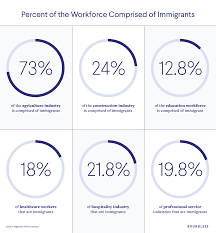The COVID-19 pandemic has had a significant impact on visa and immigration policies around the world. Governments have been forced to implement new measures to protect public health while also maintaining the flow of people and goods across borders. In this article, we will explore the impact of COVID-19 on visa and immigration policies, and provide an overview of the current situation.
Impact on Visa Processing
The COVID-19 pandemic has resulted in significant disruptions to visa processing around the world. Many countries have closed their borders, suspended visa processing, or limited the types of visas that are available. This has had a significant impact on individuals who are seeking to travel to a new country or renew their visa.
In addition, many countries have implemented new health and safety measures for visa processing, such as mandatory quarantine periods or COVID-19 testing. This has added additional complexity and expense to the visa application process.
Impact on Immigration Policies
The COVID-19 pandemic has also had a significant impact on immigration policies around the world. Many countries have implemented new policies to limit the spread of the virus, such as travel restrictions, quarantine requirements, or visa extensions. These policies have had a significant impact on individuals who are living and working in a new country.
For example, many countries have implemented travel restrictions that prohibit individuals from entering the country unless they are essential workers or have a valid reason for travel. This has impacted individuals who are seeking to return to their home country or travel for business or personal reasons.
In addition, many countries have implemented new policies to support individuals who are unable to return to their home country due to COVID-19. This has included visa extensions, work permits, and financial support for those who are unable to work or support themselves.
Current Situation
As the COVID-19 pandemic continues to evolve, so too do visa and immigration policies around the world. While the situation varies by country, there are some key trends that are emerging.

Travel Restrictions: Many countries continue to implement travel restrictions, limiting the types of individuals who are able to enter the country. This has impacted individuals who are seeking to travel for business or personal reasons, as well as those who are seeking to return to their home country.
Health and Safety Measures: Many countries continue to implement health and safety measures for visa processing and immigration, such as mandatory COVID-19 testing or quarantine periods. This has added additional complexity and expense to the visa application and immigration processes.
Digital Transformation: The COVID-19 pandemic has accelerated the digital transformation of visa and immigration processes. Many countries have implemented new online tools and processes to facilitate visa processing and immigration, such as online visa applications and virtual interviews.
Economic Considerations: Many countries are also considering the economic impact of COVID-19 on their visa and immigration policies. Some countries are looking to attract entrepreneurs and investors to support economic recovery, while others are implementing policies to protect jobs and limit immigration.
The COVID-19 pandemic has had a significant impact on visa and immigration policies around the world. Governments have been forced to implement new measures to protect public health while also maintaining the flow of people and goods across borders. As the situation continues to evolve, it is important for individuals to stay informed about the latest policies and processes, and to work closely with immigration professionals to navigate the changing landscape. Despite the challenges, there are still opportunities for individuals to travel, live, and work in new countries, and to contribute to the global community.
Tips for Navigating the Current Environment
Stay Informed: It is important for individuals to stay informed about the latest visa and immigration policies and processes in the countries they are interested in. This can include monitoring government websites, news outlets, and immigration forums.
Work with Immigration Professionals: Immigration professionals, such as lawyers or consultants, can provide valuable guidance and support in navigating the visa and immigration processes. They can help individuals understand the latest policies and processes, prepare strong visa applications, and provide support in the event of delays or complications.

Consider Digital Options: Many countries are implementing digital options for visa processing and immigration, such as online visa applications and virtual interviews. It is important to consider these options and take advantage of them where possible.
Plan Ahead: Due to the current environment, visa and immigration processing times may be longer than usual. It is important to plan ahead and apply for visas well in advance of any planned travel or immigration.
Be Flexible: The COVID-19 pandemic has resulted in a rapidly changing environment for visa and immigration policies. It is important to be flexible and adaptable in response to these changes, and to be prepared for delays or changes to travel plans.
In summary, the COVID-19 pandemic has had a significant impact on visa and immigration policies around the world. Governments have been forced to implement new measures to protect public health while also maintaining the flow of people and goods across borders. As the situation continues to evolve, it is important for individuals to stay informed, work with immigration professionals, and be flexible and adaptable in response to changing policies and processes. Despite the challenges, there are still opportunities for individuals to travel, live, and work in new countries, and to contribute to the global community.










